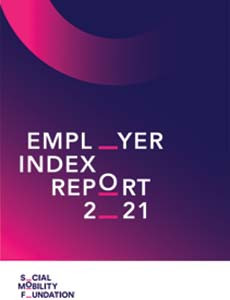*/

Fiona Fitzgerald shares Radcliffe Chambers' social mobility strategy, the only chambers to be featured in the Social Mobility Foundation’s Employer Index
To make a real impact on social mobility, you need to put it at the heart of your chambers. Manage it as you would any other strategy.
As a starting point, I would wholeheartedly recommend entering the Social Mobility Foundation’s Employer Index. Every organisation receives detailed feedback, and we have found this extremely helpful in focusing our efforts to improve year on year.
With the above in mind, it will come as no surprise that my first tip is to make sure that you have a proper plan. Set ambitious, but achievable objectives. One of our first was to organise an annual barrister experience programme for sixth-formers from underrepresented backgrounds. From there, we moved on to contextual recruitment, improving our pupillage marketing, and so on.
Make sure to agree on how you will measure the impact of your activities. Key performance indicators might be an increase in the diversity of candidates applying for pupillage, increased awareness of chambers among applicants, or an improved ranking on the Employer Index!
To achieve your objectives, you will need buy-in from staff and members of chambers. At Radcliffe Chambers, we were lucky that a significant number of us were already involved in social mobility activities such as mentoring, so we were pushing at an open door. However, we did need to reach more people and did so through a combination of awareness-raising and training.
If you are struggling to bring people with you, one point that always proves particularly persuasive is that clients want and expect the sets they instruct to be proactive in this area. It’s important to the brand of the Bar and when recruiting the best candidates. Indeed, I have had recent experience of clients emailing me to say how reassuring it was that we were so engaged.
You need a team of people to deliver large-scale projects like our sixth-form experience (which usually involves around a third of our chambers in a direct capacity). You will also need leaders. Find them and empower them to drive your strategy forward. We were lucky that Kate Selway QC was determined to get this project off the ground and make it a success. Well-run committees can help achieve this aim, but don’t underestimate individuals. Don’t forget that leaders can be found at all levels of seniority.
Getting the internal team right is important, but it is also really important to recognise where you don’t have the right experience and need to bring in external expertise. We have hugely increased our impact by collaborating with several outstanding organisations, including youth outreach charity BVL, RARE contextual recruitment and, of course, the Social Mobility Foundation. We have also greatly benefitted from working with Bridging the Bar, the Chancery Bar Association, and the Inns of Court, and with publications like The Times, Legal Cheek and Counsel Magazine, who have helped us publicise our work. We can achieve so much more when we all work together.
My final tip is to take a flexible approach. I mean this in two senses. The first is that things change. Social mobility is a fast-developing area and you need to be ready to update your strategy on an ongoing basis. For example, take account of recruitment best practice, such as contextual recruitment. The second is that it can be helpful to mix things up. By offering a broad range of ways that staff and barristers can promote social mobility, we have enabled more of our people to make a difference and increased Chambers’ overall impact. With options including joining a committee, becoming a mentor, helping with our sixth-form barrister experience, taking on mini-pupils and attending pupillage fairs, there is something that everyone can do, whatever their skills and availability.


To make a real impact on social mobility, you need to put it at the heart of your chambers. Manage it as you would any other strategy.
As a starting point, I would wholeheartedly recommend entering the Social Mobility Foundation’s Employer Index. Every organisation receives detailed feedback, and we have found this extremely helpful in focusing our efforts to improve year on year.
With the above in mind, it will come as no surprise that my first tip is to make sure that you have a proper plan. Set ambitious, but achievable objectives. One of our first was to organise an annual barrister experience programme for sixth-formers from underrepresented backgrounds. From there, we moved on to contextual recruitment, improving our pupillage marketing, and so on.
Make sure to agree on how you will measure the impact of your activities. Key performance indicators might be an increase in the diversity of candidates applying for pupillage, increased awareness of chambers among applicants, or an improved ranking on the Employer Index!
To achieve your objectives, you will need buy-in from staff and members of chambers. At Radcliffe Chambers, we were lucky that a significant number of us were already involved in social mobility activities such as mentoring, so we were pushing at an open door. However, we did need to reach more people and did so through a combination of awareness-raising and training.
If you are struggling to bring people with you, one point that always proves particularly persuasive is that clients want and expect the sets they instruct to be proactive in this area. It’s important to the brand of the Bar and when recruiting the best candidates. Indeed, I have had recent experience of clients emailing me to say how reassuring it was that we were so engaged.
You need a team of people to deliver large-scale projects like our sixth-form experience (which usually involves around a third of our chambers in a direct capacity). You will also need leaders. Find them and empower them to drive your strategy forward. We were lucky that Kate Selway QC was determined to get this project off the ground and make it a success. Well-run committees can help achieve this aim, but don’t underestimate individuals. Don’t forget that leaders can be found at all levels of seniority.
Getting the internal team right is important, but it is also really important to recognise where you don’t have the right experience and need to bring in external expertise. We have hugely increased our impact by collaborating with several outstanding organisations, including youth outreach charity BVL, RARE contextual recruitment and, of course, the Social Mobility Foundation. We have also greatly benefitted from working with Bridging the Bar, the Chancery Bar Association, and the Inns of Court, and with publications like The Times, Legal Cheek and Counsel Magazine, who have helped us publicise our work. We can achieve so much more when we all work together.
My final tip is to take a flexible approach. I mean this in two senses. The first is that things change. Social mobility is a fast-developing area and you need to be ready to update your strategy on an ongoing basis. For example, take account of recruitment best practice, such as contextual recruitment. The second is that it can be helpful to mix things up. By offering a broad range of ways that staff and barristers can promote social mobility, we have enabled more of our people to make a difference and increased Chambers’ overall impact. With options including joining a committee, becoming a mentor, helping with our sixth-form barrister experience, taking on mini-pupils and attending pupillage fairs, there is something that everyone can do, whatever their skills and availability.

Fiona Fitzgerald shares Radcliffe Chambers' social mobility strategy, the only chambers to be featured in the Social Mobility Foundation’s Employer Index


The Bar Council is ready to support a turn to the efficiencies that will make a difference
By Louise Crush of Westgate Wealth Management
Marie Law, Director of Toxicology at AlphaBiolabs, examines the latest ONS data on drug misuse and its implications for toxicology testing in family law cases
An interview with Rob Wagg, CEO of New Park Court Chambers
What meaningful steps can you take in 2026 to advance your legal career? asks Thomas Cowan of St Pauls Chambers
Marie Law, Director of Toxicology at AlphaBiolabs, explains why drugs may appear in test results, despite the donor denying use of them
Ever wondered what a pupillage is like at the CPS? This Q and A provides an insight into the training, experience and next steps
The appointments of 96 new King’s Counsel (also known as silk) are announced today
Ready for the new way to do tax returns? David Southern KC continues his series explaining the impact on barristers. In part 2, a worked example shows the specific practicalities of adapting to the new system
Resolution of the criminal justice crisis does not lie in reheating old ideas that have been roundly rejected before, say Ed Vickers KC, Faras Baloch and Katie Bacon
With pupillage application season under way, Laura Wright reflects on her route to ‘tech barrister’ and offers advice for those aiming at a career at the Bar